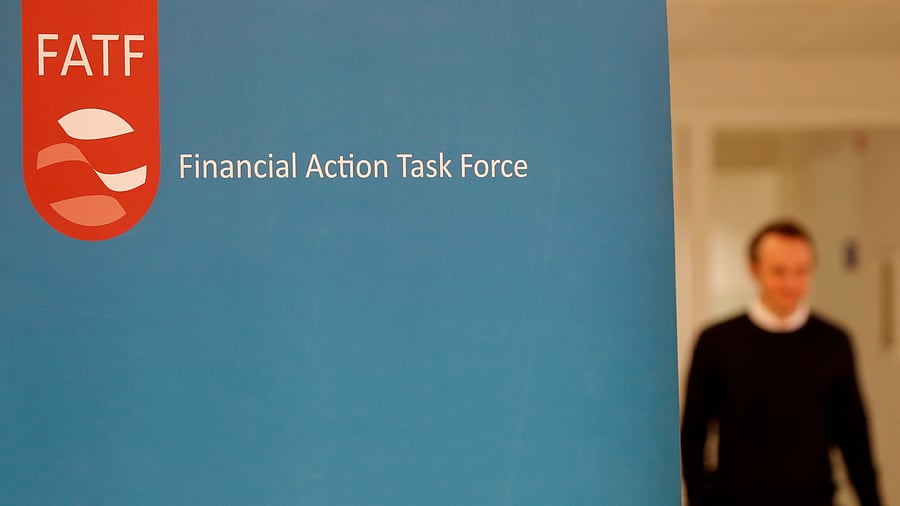
The logo of the FATF (the Financial Action Task Force)
Credit: Reuters Photo
New Delhi: The global money laundering and terror financing watchdog Financial Action Task Force (FATF) has flagged state sponsorship of terrorism for the first time in its report, reinforcing India's long-standing position regarding Pakistan's role in funding of terrorist groups like Lashkar-e-Taiba (LeT) and Jaish-e-Mohammed (JeM).
The report, titled "Comprehensive Update on Terrorist Financing Risks" shared by the Union Finance Ministry on Wednesday, LeT and JeM as beneficiaries of state sponsorship. These groups have been linked to several terrorist attacks in India.
"A variety of publicly available sources of information and delegations' inputs to this report indicate that certain terrorist organisations have been and continue to receive financial and other forms of support from several national governments," the FATF said in the report.
The global anti-terror financing watchdog has included a separate section on state-sponsored terrorism.
Though the FATF did not make any direct mention of Pakistan as a sponsor of terrorism, the references give enough indication. This will bolster India's demand for adding Pakistan in the "grey list".
Paris-headquartered FATF categorises countries in four groups namely, 'regular follow-up', 'enhanced follow-up', 'grey list' and 'black list'. India is ranked as 'regular follow-up', which is the best category. Grey-listed countries are required to report to FATF once in every four months on its action plan. If it does not show progress, it can be pushed to the black list, which is subject to counter measures especially related to trade and investments.
The FATF also flagged the misuse of e-commerce and digital payment platforms for carrying out terrorist activities.
Giving a case study on the misuse of e-commerce platforms for procurement of materials for terrorist attacks in India, the FATF said a key component of the improvised explosive device used in the attack -- aluminum powder -- was procured through the EPOM Amazon. This material was used to enhance the impact of the blast.
"In February 2019, a suicide bombing targeted a convoy of Indian security forces in Pulwama in Jammu & Kashmir, resulting in the deaths of 40 soldiers. India's authorities concluded that the attack was orchestrated by JeM," the report said.